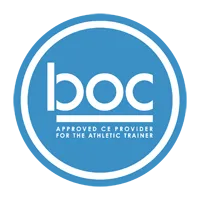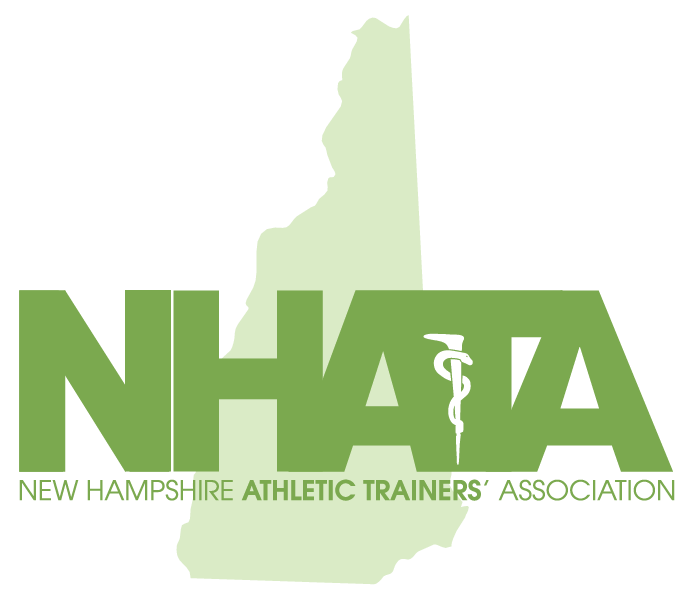Common Athletic Injuries of the Ankle & Foot; Ankle fractures, Syndesmotic injuries, Lisfranc injuries and Turf Toe
Available December 20, 2023 to December 31, 2024
Format: Virtual, Asynchronous lecture/On-Demand
Schedule:
- Video 1: Introduction (non-CEU)
- Video 2: Ankle Fractures
- Video 3: Syndesmotic Injuries
- Video 4: Lisfranc Injuries
- Video 5: Turf Toe Injuries
CEUs: 1.5 Category A
NHATA Members may register for free with the “registration” form immediately below or register using the “Donation” ticket below. Non-NHATA members, please purchase a “non-NHATA” Member ticket for registration.
Join 28 others! Already registered?Register


Dr. Stupay is a Board-Certified Orthopaedic surgeon who sub-specializes in surgery of the ankle and foot. She is originally from Northern Virginia, but as an ice hockey player spent her undergraduate years at Yale University where she was a 4-year ECAC All-Academic member of the Varsity Women’s Ice Hockey team, and earned her Bachelor’s degree in History of Science and Medicine. She then went on to obtain her medical degree at Tulane University in New Orleans, before returning to New England for residency and fellowship in Orthopaedic Surgery at the Harvard Combined Orthopaedic Residency Program, and Brigham & Women’s Orthopaedic Foot & Ankle Fellowship. After 6 years in Boston, Kristen and her husband, Mark, and their dog Benton moved to Concord, where she joined Concord Orthopaedics. She has an interest in athletic injuries of the ankle and foot, ankle and foot fractures and trauma, and has training in minimally invasive techniques in foot & ankle surgery. When not working, she enjoys cycling, running, traveling (mostly on bikes), walking/running in the woods with Benton, trying to grow avocado plants, and sampling craft beers.
Educational Need: Athletic trainers provide care to a variety of patients across settings and the lifespan, and must be familiar with common and not so common foot and ankle injuries. Some of these injuries include ankle fractures, syndesmotic injuries, lisfranc and turf toe. Because athletic trainers are often the first point of contact with the healthcare system in these settings, recognizing and knowing how to treat or to whom to refer is paramount to optimize patient outcomes.
Learning Objectives
At the completion of this presentation you will be able to:
- Define the difference between stable and unstable ankle fractures.
- Differentiate between an ankle sprain, high ankle sprain, and Maisonneuvre fracture.
- Explain the anatomy and definition of a Lisfranc injury.
- Explain the anatomy and definition of a Turf Toe injury.
- Describe surgical and non-surgical treatment options.
Level of Difficulty
Essential
Target Audience
Athletic Trainers
Required Equipment
Electronic device to consume on-demand content. Learners are encouraged to use any materials and equipment to enhance their personal learning style.
Disclosers
Course faculty and planner(s) have no commercial interests, financial relationships, or relevant financial relationships, or actual or potential conflict of interest in relation to this program.

New Hampshire Athletic Trainers’ Association (BOC AP#P305) is approved by the Board of Certification, Inc. to offer continuing education to Certified Athletic Trainers.
Refunds and Cancellations
Cancellation/refund policy: No refunds will be issued for NHATA members as this event is free. The New Hampshire Athletic Trainers’ Association (NHATA) will fully refund paying registrants who have not claimed credit for the course less 20% of registration fees. All requests for cancellations must be made in writing by email to the NHATA Treasurer at treasurer@nhata.org. Any other form of cancellation will not be honored. If the NHATA must cancel the event, paying registrants will receive a refund of all monies received.
Non-Discrimination
The New Hampshire Athletic Trainers’ Association (NHATA) does not discriminate on the basis of race, color, national origin, religion, sex, disability, military status, sexual orientation or age. The NHATA will promote equality and diversity at all times as the NHATA is committed to the accessibility and non-discrimination in all aspects of its continuing education activities. Participants who have special needs are encouraged to contact program organizers to that all reasonable efforts to accommodate these needs can be made.
Sponsors
Concord Orthopaedics, Northeast Delta Dental, Apple Therapy, NH Musculoskeletal Institute, Keene Rebels

